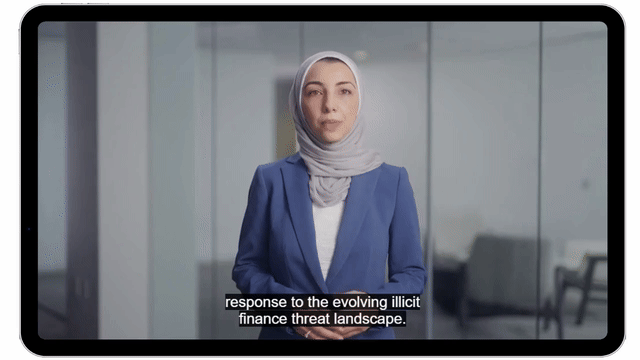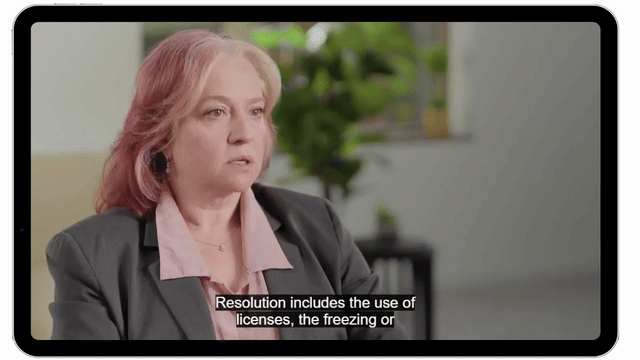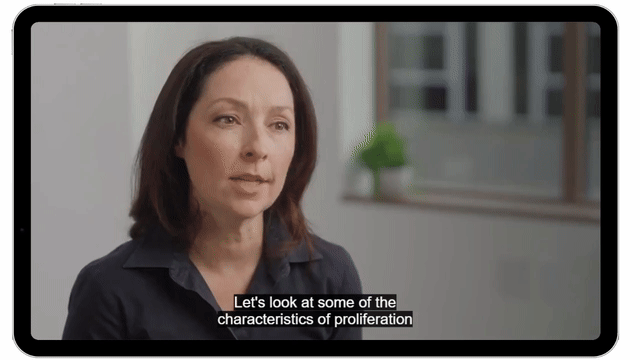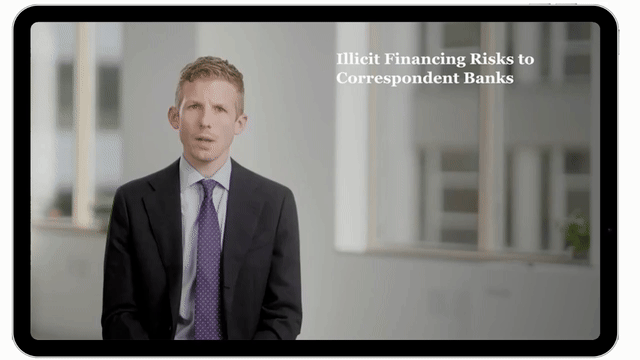The Experience
An online learning journey through the various domains of financial crime, this training program is delivered via expert-led videos and interactive scenarios.
We begin by exploring the Counter-Illicit Finance Mission and Global Standards, which provides a foundational understanding of the key stakeholders and global frameworks that support the financial integrity mission. Gain insights into the international cooperation needed to safeguard financial systems, and the standards set by organizations such as the Financial Action Task Force, and others.
Next, we dive into Illicit Threats, Vulnerabilities, and Risks, where we cover anti-money laundering, countering the financing of terrorism, anti-bribery and corruption, anti-fraud, sanctions, countering the financing of the proliferation of weapons of mass destruction, and strategic trade controls.
For each illicit finance domain, learners hear about relevant global, supranational, and national standards and regulations; understand the vulnerabilities and red flags for these threats; and understand their significant impacts on the global financial system.
The program then provides a detailed look at Supervision and Preventative Measures, highlighting the role of financial sector supervisors, along with guidance and requirements at the global and national level.
We also discuss how supervisors can encourage collaboration and information sharing within the public and private sector and the benefits this provides.
Next, we review what good compliance looks like and the consequences if things go wrong.
We discuss the key pillars of a counter-illicit finance program, what a Culture of Compliance is, and the elements necessary to establish one within your organization.
Then, we give an overview of Enforcement Actions in Counter-Illicit Finance and the consequences of falling short of regulatory expectations, which may include reputational risks, and their implications.
In these sessions, we examine real-life examples of enforcement actions and how to apply the lessons learned from these actions.
Finally, we look at two specific banking areas that require more detailed attention due to their complexity and the illicit finance risks they present. Cross-Border Payments and Correspondent Relationships, focusing on the key role of correspondent banks in the international financial system. We discuss illicit finance risks and issues, along with the global standards and due diligence practices that should be used to mitigate these risks.
We also cover Trade Finance, an essential area of international commerce that can be exploited for illicit finance. We’ll learn about the types of trade finance, the meaning of trade-based money laundering and its red flags, and how to identify and mitigate these risks.
By the end of this program, learners will not only understand these core topics, but also gain the knowledge and understanding to enhance your institution’s compliance strategies, and protect against illicit finance risks.
Whether new to the field or looking to deepen expertise, this program offers valuable insights to help today’s professionals navigate the complexities of financial integrity and contribute to a more secure global financial landscape.






